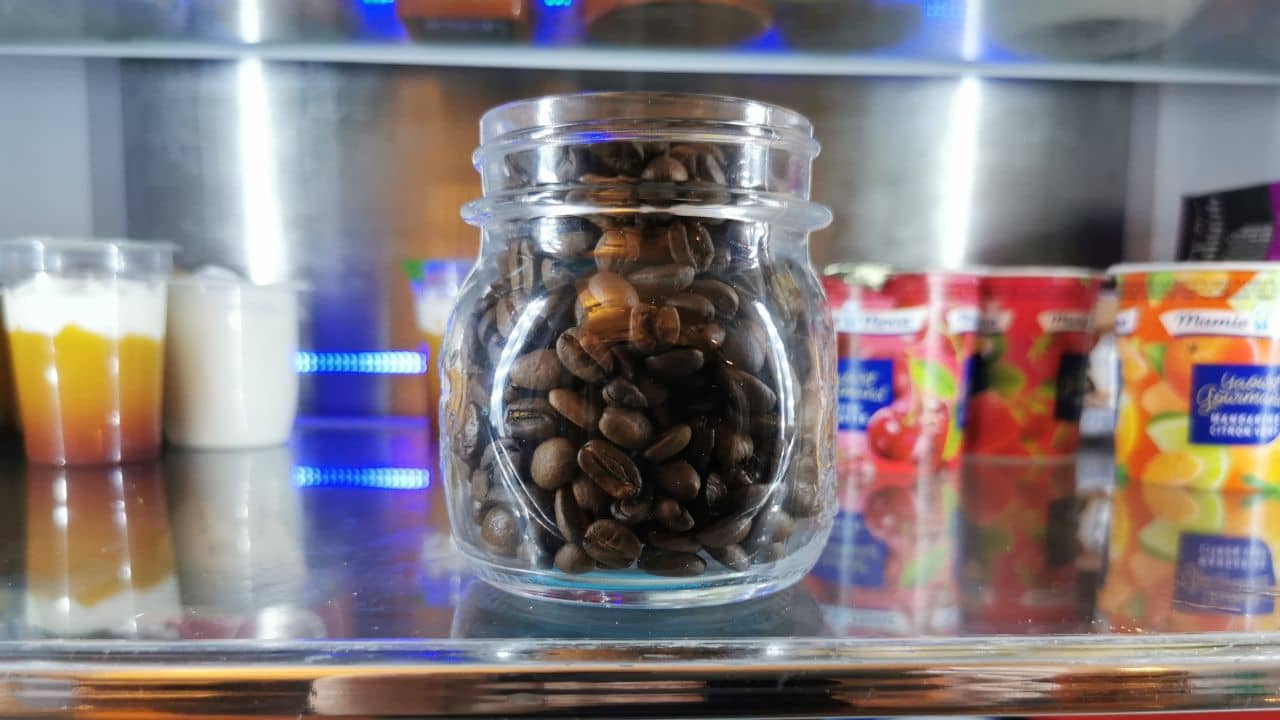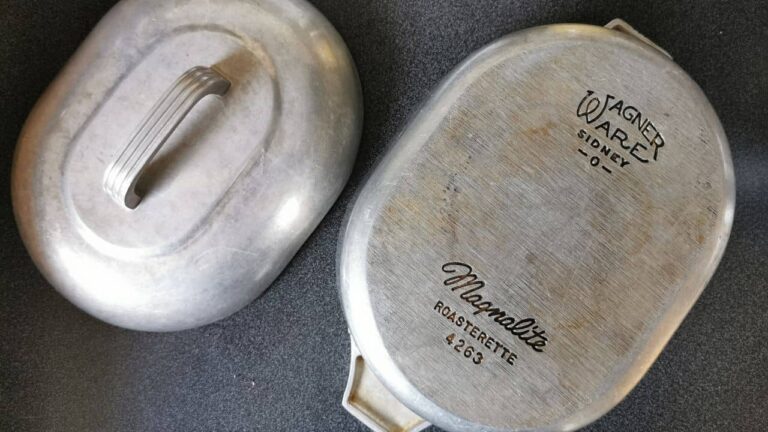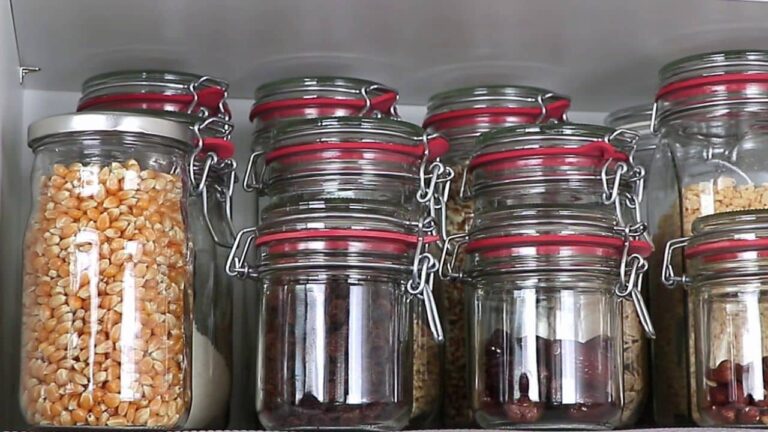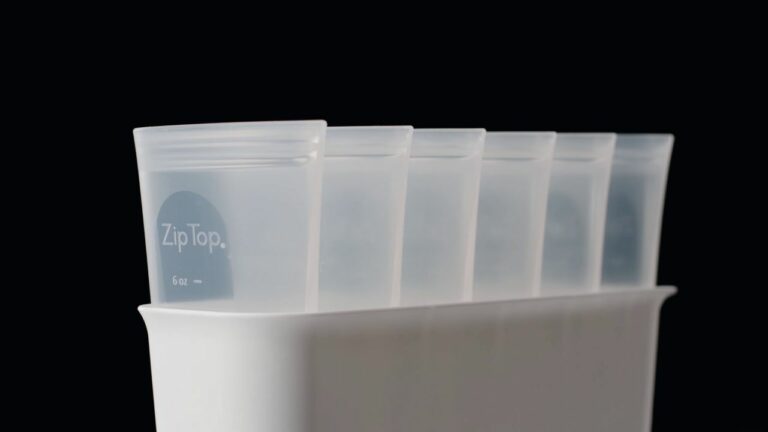You Might Want To Think Twice Before Keeping Coffee in the Fridge!
Most of us have done it, right? We bought a new bag of expensive coffee beans and put them in the freezer because we weren’t entirely done with our other bag of expensive coffee beans just yet. Or, in the mad dash to make an iced coffee, we’ve brewed a hot cup and put it in the freezer. But should you keep coffee in the fridge?
Coffee, whether beans, grounds or a brewed cup, shouldn’t be kept in the fridge. Though it isn’t necessarily dangerous, the moisture of the refrigerator or freezer will oxidize your coffee quicker, making it more bitter.
The best way to store your coffee is in a pantry or a cool, dry place. This article will talk more about why coffee does best on your counter and other strategies for keeping your coffee fresh.
5 Things To Know Before Keeping Coffee in the Fridge or Freezer
The confusion is understandable.
Usually, to make something last longer, our first instinct is to put it in the fridge or the freezer. This isn’t the case for coffee, though. It won’t cause any physical harm to you, but it’ll significantly damage the taste of your coffee.
Putting a hot cup of coffee in the fridge to make an iced coffee isn’t the best strategy if the taste is essential to you. Some things you need to know about adding coffee to the fridge or freezer are:
#1 Putting coffee grounds in the fridge can make them moist
There’s a reason why you have to change the baking soda out of your fridge every 30 days.
Naturally, your fridge is a pretty moist place. In the best of circumstances, this can affect the food and drinks you place in it. In the worst of circumstances, condensation may even build up in your fridge.
Coffee is hygroscopic, meaning it absorbs moisture from the air around it. Not only does it absorb moisture, but it also absorbs tastes and smells too. Freshness is essential for a quality cup of joe, so adding moisture to your beans isn’t ideal.
If your coffee can absorb the taste of a leftover casserole, or the smell of an onion you saved for later, it probably won’t result in a great cup.
#2 Already made coffee can oxidize in the fridge
Some days, whether the weather is hot or cold, iced coffee is the only thing that’ll really hit the spot. Who hasn’t just put their usual cup in the fridge and waited for it to cool down, so you could add ice, creamer, and all the other bells and whistles?
As soon as your coffee is brewed, it begins the process of oxidation. Its exposure to air is what begins the process, which is why an apple doesn’t start browning until you cut it open. You can use an airtight mason jar or container, but a great container still can’t stop oxidation.
The oxidation process isn’t great for avocados or apples, but the oxidation process isn’t ideal for your coffee either. Freshness for your cup is everything. Oxidized coffee tastes bitter, feels different, and is overall not as tasty as a fresh cup.
#3 It’s best to store coffee in a cool, dark place
Okay, so where should coffee beans go, then?
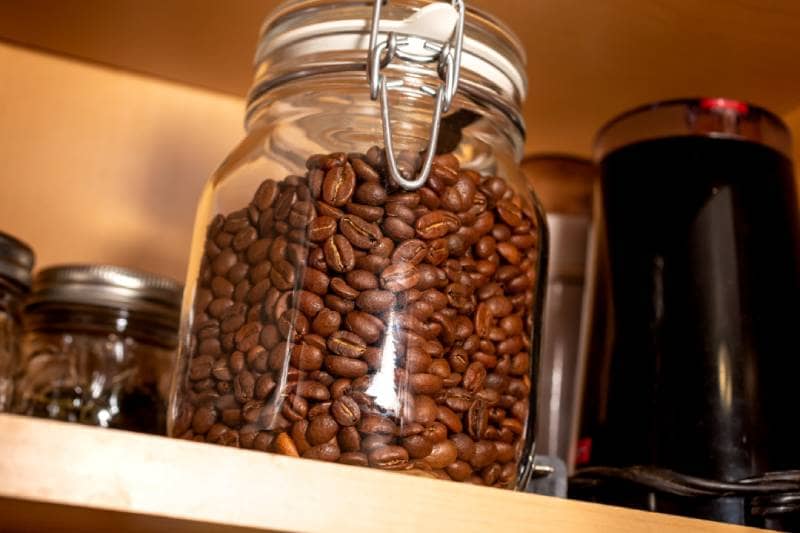
Most experts, including those at Harvard, suggest keeping your coffee in a cool, dark place. Keeping your coffee somewhere cool ensures that the bag won’t heat up and cause condensation in your beans, making them moist before you can even brew them. This is the same reason you should find somewhere dark.
Additionally, how you close your container matters. As I mentioned above, the oxidation process begins as soon as you open up your container or bag of coffee beans, so you must seal the container as tightly as possible. If you typically purchase bags or jars of coffee, invest in an airtight container.
The Planetary Design Stainless Steel Coffee Canister (available on Amazon.com), for example, will even push out excess air to give you the freshest cup.
#4 To make better-iced coffee at home, use other strategies
There are better ways to make your iced coffee!
It’s an understandable and innovative strategy, of course, to throw your hot cup in the freezer while you get ready for work so that you’ll have iced coffee by the time you need to leave. But as I mentioned above, this’ll make your coffee taste bitter and change the texture. Instead, you could:
- Make coffee ice-cubes (which will, yes, be bitter and less delicious than regular coffee, but when added to your cup of hot coffee, won’t water it down).
- Buy pre-made iced coffee from the store.
- Get a coffee maker, such as the Braun Drip Coffee Machine, with iced coffee capabilities.
- Purchase a cold brew coffee maker, such as the Cafe Du Chateau Cold Brew Coffee Maker, with super airtight seals.
#5 Putting coffee in the fridge isn’t dangerous
When all is said and done, we are all humans. Sometimes old habits die hard.
Though putting coffee in the fridge isn’t a great idea if you care about the taste or bitterness of your morning cup, it isn’t a dangerous thing to do. Putting anything in the fridge without properly sealing it or paying attention to food hazards (for example, a container of dripping red meat above the water pitcher probably isn’t a good idea) can make it taste kind of off or put you at risk of cross-contamination. But if you’re just pulling out a bag of beans from the fridge, there’ll be little to no harm.
Don’t fear your mother-in-law or a colleague pulling out a bag of fresh grounds from the fridge. At the very worst, as long as they have a clean fridge, all you’ll have to worry about is a bitter cup of coffee.
Keeping Coffee Fresher, Longer
A good cup of coffee in the morning can make all the difference.

Even if you don’t consider yourself a “coffee snob,” there’s no denying the taste difference between a fresh cup of coffee and the coffee that’s been sitting in the pot since the morning meeting. Investing in the little things makes a significant impact.
If you want to give your coffee grounds or brewed coffee some love, you can look for:
- Airtight coffee bean and ground containers.
- Containers for the fridge with airtight seals.
- Coffee makers with airtight seals.
- Vacuum sealed coffee cups.
- Look for opaque coffee ground/bean containers.
Keep your coffee away from heat sources and moisture, and your coffee will stay as fresh as it is able!
Final Thoughts
Though putting your coffee in the fridge isn’t necessarily dangerous, it’ll really make a difference in the overall taste of your coffee.
To keep your coffee fresher for longer, you should keep it in a cool, dry place on the counter or in your pantry. Putting your coffee in the fridge will allow it to absorb all kinds of tastes, smells, and moisture.
Sources
- NCA USA: How to Store Coffee Beans
- Harvard TH Chan School of Public Health: Coffee | The Nutrition Source
- Consumer Reports: What’s the Best Way to Store Coffee Beans?

